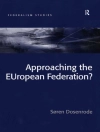The Little Quick Fix to Understanding Probability breaks it down step by step with crystal clear examples and exercises from one of the leading quantitative teachers in the UK. All you need is an hour and you′ll finally get it. Once it clicks into place, you can nail that section of your exam.
Little Quick Fix titles provide quick but authoritative answers to the problems, hurdles, and assessment points students face in the research course, project proposal, or design—whatever their methods learning is.
- Lively, ultra-modern design; full-colour, each page a tailored design.
- An hour′s read. Easy to dip in and out of with clear navigation enables the reader to find what she needs—quick.
- Direct written style gets to the point with clear language. Nothing needs to be read twice. No fluff.
- Learning is reinforced through a 2-minute overview summary; 3-second summaries with super-quick Q&A
- DIY tasks create a work plan to accomplish a task, do a self-check quiz, solve a problem, get students to what they need to show their supervisor.
- Checkpoints in each section make sure students are nailing it as they go and support self-directed learning.
- How do I know I’m done? Each Little Quick Fix wraps up with a finale checklist that allows the reader to self-assess they’ve got what they need to progress, submit, or ace the test or task.
Table des matières
1. What is probability and why does it matter?
2. How do I work out how probable things are?
3. What are the two essential uses of probability?
4. How do probabilities add up?
5. How do conditional probabilities describe aspects of society?
6. The DIY workbook
A propos de l’auteur
From 2009 to 2014 John was the Strategic Advisor to the Economic and Social Research Council (ESRC) on quantitative methods training overseeing the genesis and launch of the Q-Step programme. From 2015 to 2020 he was Strategic Advisor to the British Academy on Quantitative skills and a member of the British Academy’s High Level Strategy group on Quantitative Skills. John is a Chartered Statistician and was Vice President (Professional Affairs) of the Royal Statistical Society 2019-20. He has held research grants from the European Commission, UK ESRC, British Academy, Leverhulme trust and British, Spanish and Catalan government departments.












